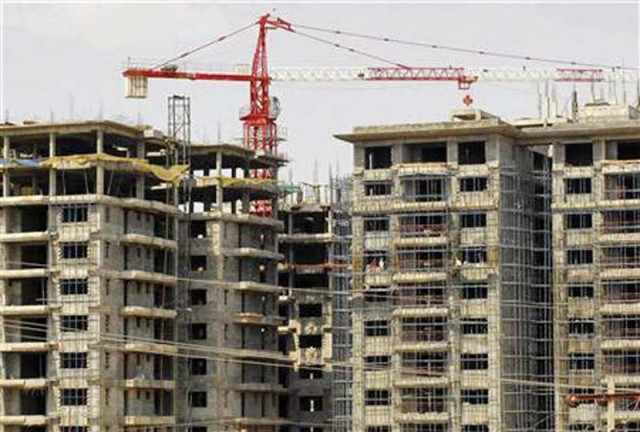When real estate got a jolt
Market activity came to an abrupt halt after levy of higher taxes

When real estate got a jolt
The first six months of the calendar year were in fact encouraging as markets had started recovering from the phase of subdued growth. Of these, the Karachi market needs a special mention as it was earlier performing below par because of the repercussions of terrorism and bad law and order that had dogged the city for years.
A modest improvement in the real estate market of Pakistan’s biggest metropolitan city rekindled investor confidence with huge demand coming from domestic investors, overseas Pakistanis and to some extent international investors.
Other big realty markets - Lahore and Islamabad - followed suit. However, this did not last long and things took an ugly turn in the middle of the year.
In the budget for fiscal year 2016-17 announced in June, the federal government proposed a new tax system for the realty market, in particular, it revised the old tax rates. As a result, trading activities slowed down markedly as market players failed to comprehend the new tax mechanism.
Dealers and investors were not willing to pay taxes at higher property valuations that would increase their tax burden substantially. They had for years paid very low taxes because of a huge difference between the fair and district commissioner-determined value of properties.
The government proposed the imposition of 10% capital gains tax on properties sold within five years of purchase. The time frame was later revised to three years.
Property markets were already paying the levy in the shape of advance tax on profits or withholding tax on the purchase of property. The capital gains tax could be adjusted at the time of filing tax returns, meaning only the return filers would be able to benefit from it.
Separately, the government increased withholding tax on the sale of property from 0.5% to 1% for return filers and from 1% to 2% for non-filers.
Similarly, the withholding tax (advance tax) on property purchase was pushed upwards from 1% to 2% for the filers and from 2% to 4% for the non-filers.
These taxes were in addition to the provincial levies, which were required to be paid every time a property was bought or sold.
The real blow to the realty market came from the revised property valuations, set by the Federal Board of Revenue (FBR). These valuations were almost double the existing valuations determined by district commissioners in provinces and were virtually half the market values.
At present, the market players are paying federal taxes on FBR’s property valuations and provincial taxes on provincial property valuations.
The new tax mechanism sparked protests and calls for withdrawal of new levies and at later stages reduction in their rates. The government realised that its move was not helping the FBR in collecting more revenues as investors had pulled out, fearing scrutiny of their wealth.
After negotiations, the government introduced a tax amnesty scheme for the real estate sector that allowed property owners to legalise their properties by paying just 3% tax on the difference between the FBR and provincial valuations.
Still, uncertainty prevails in the market as majority of the investors and traders are not tax return filers and they don’t want to come under the tax net either since they believe that the FBR will try to probe their source of income.
On the other hand, real buyers and sellers believe that nothing more can be offered to them by the government. Dealings have started but on a very low scale compared to the previous year.
It will take months before the market actually comes to grips with the new tax system. FBR officials need to educate the market players regularly through meetings, workshops, seminars, social, print and electronic media.
These continuous efforts can help the markets, investors as well as FBR in clearing the mess, created by the uneducated agents, and will ultimately bring back investor confidence.
Published in The Express Tribune, January 1st, 2017.
Like Business on Facebook, follow @TribuneBiz on Twitter to stay informed and join in the conversation.



















COMMENTS
Comments are moderated and generally will be posted if they are on-topic and not abusive.
For more information, please see our Comments FAQ